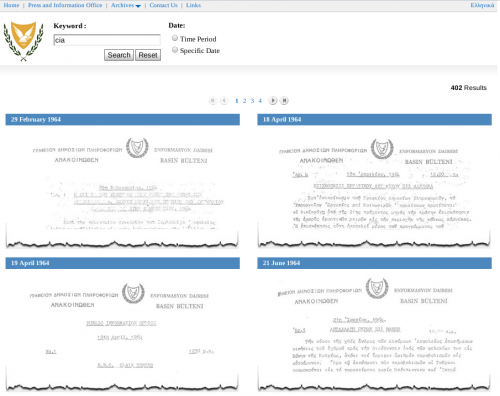Cyprus Mail reports:
GOVERNMENT spokesman Stephanos Stephanou yesterday presented six Press and Information Office (PIO) websites which aim to internationally promote Cyprus and make the task of searching for information a bit less daunting.
The websites are:
- Press and Information Office website – the main PIO website which is updated daily with all government announcements.
- PIO Press Releases – a search engine for government announcements archives. Even though most of the documents I came across are in Greek, I still like the way search results are presented (see screenshot below).
- Aspects of Cyprus – a large presentation about Cyprus, covering history, culture, politics, economics and more. It includes a few videos and more than 300 photographs.
- Peri Kyprou – the Greek version of the Aspects of Cyprus.
- Cyprus Film – a 40+ short films produced by PIO and other government offices.
- Elections 2011 – a website built specifically for Cyprus parliamentary elections of 2011. This will probably be obsolete after May 22, but I wouldn’t know for sure as the website is in Greek only.
